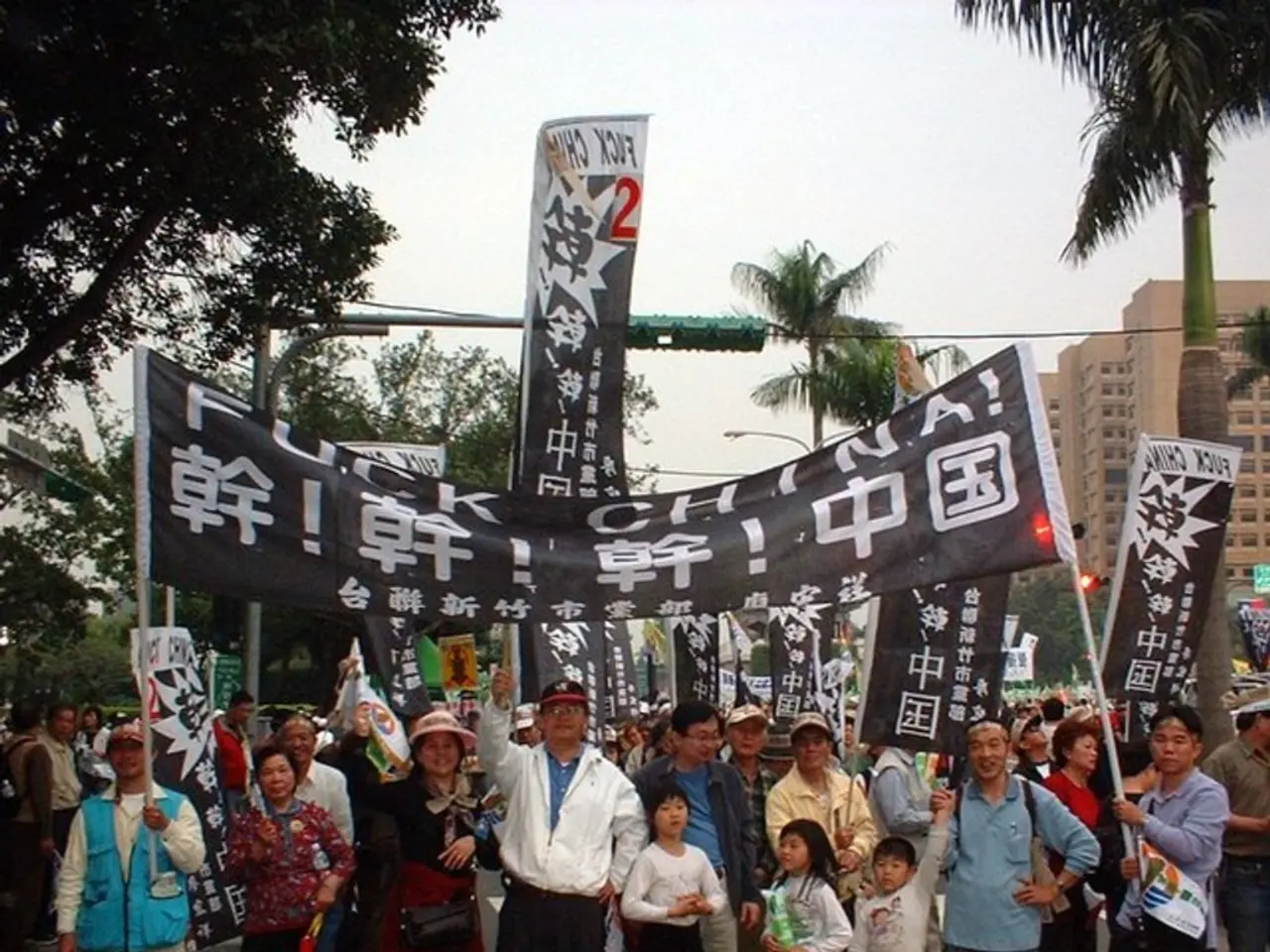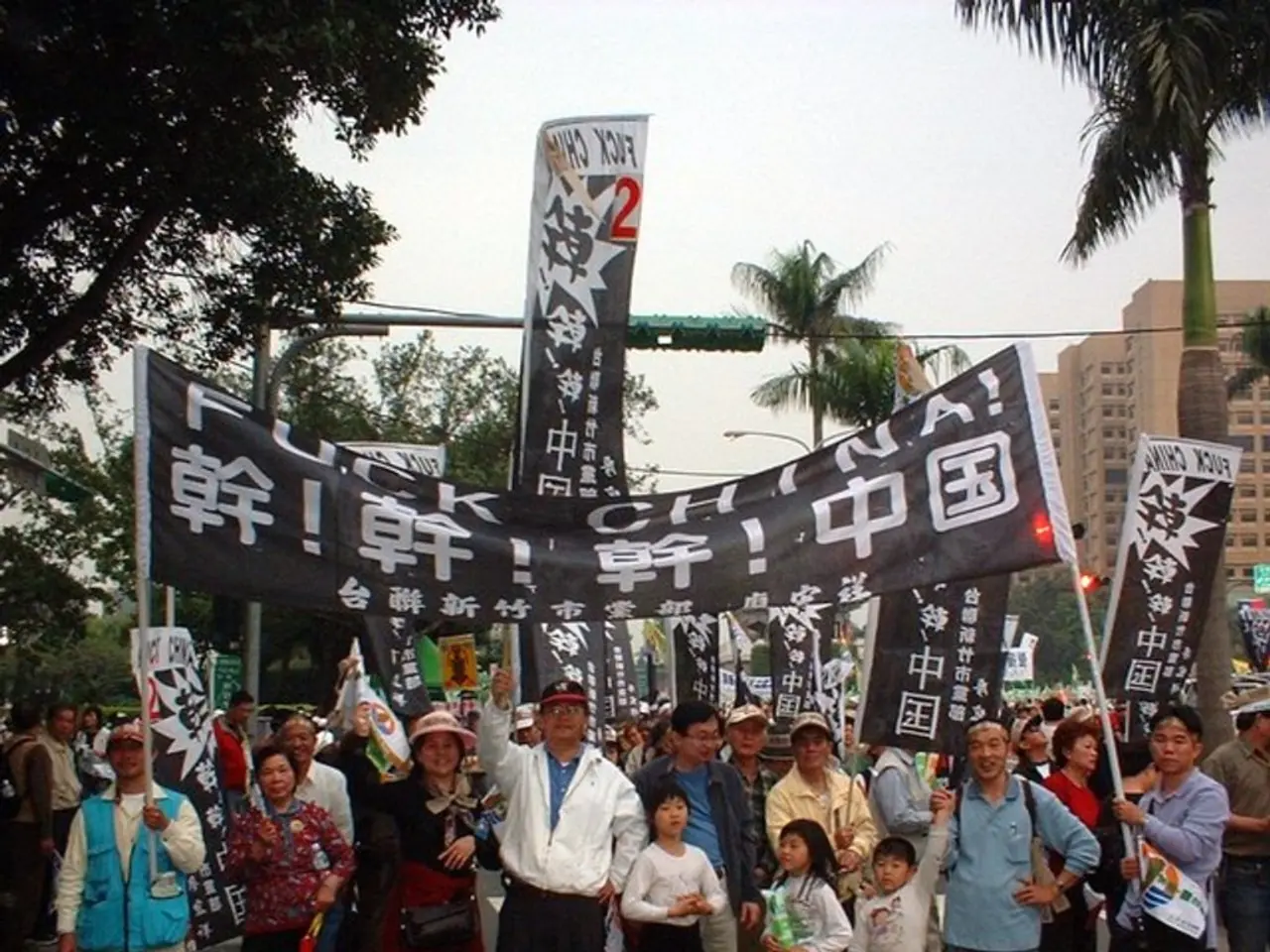Stepping Back on Rainbows? A Look at LGBTQ+ Support in Today's Germany
Society's push for diversity facing potential pushback?
Strolling Down Memory LaneThis year, the Christopher Street Day (CSD) - a monthly celebration of queer freedom and expression that has been around for decades in Germany - promises a rainbow of inclusivity and communion. But, this year might also mark a shift in the political landscape, chilling the once-warm waters of LGBTQ+ acceptance in the heart of Europe.
Pride and PoliticsAs the festivities kick off in June, it seems that the iconic rainbow flag won't be unfurled on the emblematic Bundestag building during the upcoming CSD parade in Berlin, leaving many in the queer community scratching their heads. The reason? According to CDU politician, Julia Klöckner, the Bundestag will not fly the LGBTQ+ flag on July 26, the day of the Berlin CSD. Instead, the Pride flag was hoisted on May 17 alongside the federal and European flags on the Reichstag - a move that critics argue sends the wrong message.
Turning a Blind Eye"It's the absolutely wrong signal," remarks Alexander Irmisch, an SPD politician and co-organizer of the CSD in Regensburg. This year's parade in Regensburg, as well as in many other cities, has been scaled back due to an "abstract threat situation," the police report. "The increasing queer-hostility currently forces us to take special protective measures," says Irmisch. In this climate, political solidarity is more essential than ever.
Dark Clouds on the HorizonIn addition to sidelining CSD participants, the queer rainbow network of the Bundestag administration was not allowed to partake in this year's event, citing a "mandatory duty of neutrality." Left Party members criticized this step as a "political and moral failure on all fronts" while SPD members urged the Bundestag president to allow the queer group to participate.
Playing the Middle GroundMeanwhile, not all politicians mirror this hesitancy. CDU colleagues Karin Prien and Kai Wegner have stated that their Federal Ministry of Family Affairs will participate in the CSD in Berlin, regarding it as "an important sign for the recognition and respect for the diversity in our society." It's worth noting that the ruling mayor in Berlin, known for the city's open and welcoming atmosphere, has also announced his participation in the capital's CSD.
Foes on the HorizonHowever, the current political atmosphere is a stormy sea, not only for queer people but also for advocates of equal rights. Across the nation, reports of queer-hate crimes - including physical attacks, mainly targeting transgender and non-binary individuals - are on the rise, creating an atmosphere of danger and hostility. Over the past weekend, hooded individuals attacked a diversity festival with hammers and wooden planks, assaulting at least two people in Bad Freienwalde.
A Shift in the WindOn the increasingly hostile climate for queer people, Alexander Irmisch remarked: "It starts with minorities, but ends in the middle." The decisions of the German authorities come at a time when the country grapples with rising extremism not only from the far-right but also from a growing faction known as Deutsche Jugend voran (DJV). The group has announced a counter-demonstration to the Pride Parade in Marzahn-Hellersdorf, Berlin, spreading a chilling fear among the queer community.
Miscellaneous
- Queer Rights
- LGBTQ+ Community
- Homophobia
- Transphobia
- Right-wing Extremism
- Politics
- CDU
- SPD
- German Bundestag
- Human Rights
- Intolerance
Enrichment Insights:While there is ongoing support for LGBTQ+ rights and initiatives across Germany, recent political decisions and events suggest a need for heightened awareness and intervention. The rising incidents of hate crimes against the LGBTQ+ community present a clear threat to queer people and their advocates in Germany. The presence of extremist groups like Deutsche Jugend voran (DJV) and right-wing populist tendencies exacerbate the situation, escalating the struggle for queer people to find a safe space in an increasingly intolerant society. The turn of events highlights the importance of continued support for queer people in various aspects of their lives, from official recognition and representation to strong, visible political involvement in their fight for equality and justice.
Questioning Solidarity The recent decision by CDU politician, Julia Klöckner, to not fly the LGBTQ+ flag on the Bundestag during the Berlin CSD raises questions about the political solidarity towards the queer community in EC countries, particularly Germany.
Politics and Queer Rights As the General-News landscape evolves, it is essential to acknowledge the impact of politics on the employment policy of queer individuals, given the increasing queer-hostility and reports of crime-and-justice incidents in various parts of Europe. The situation warrants a comprehensive employment policy that protects and fosters inclusivity in the workplace and beyond.





